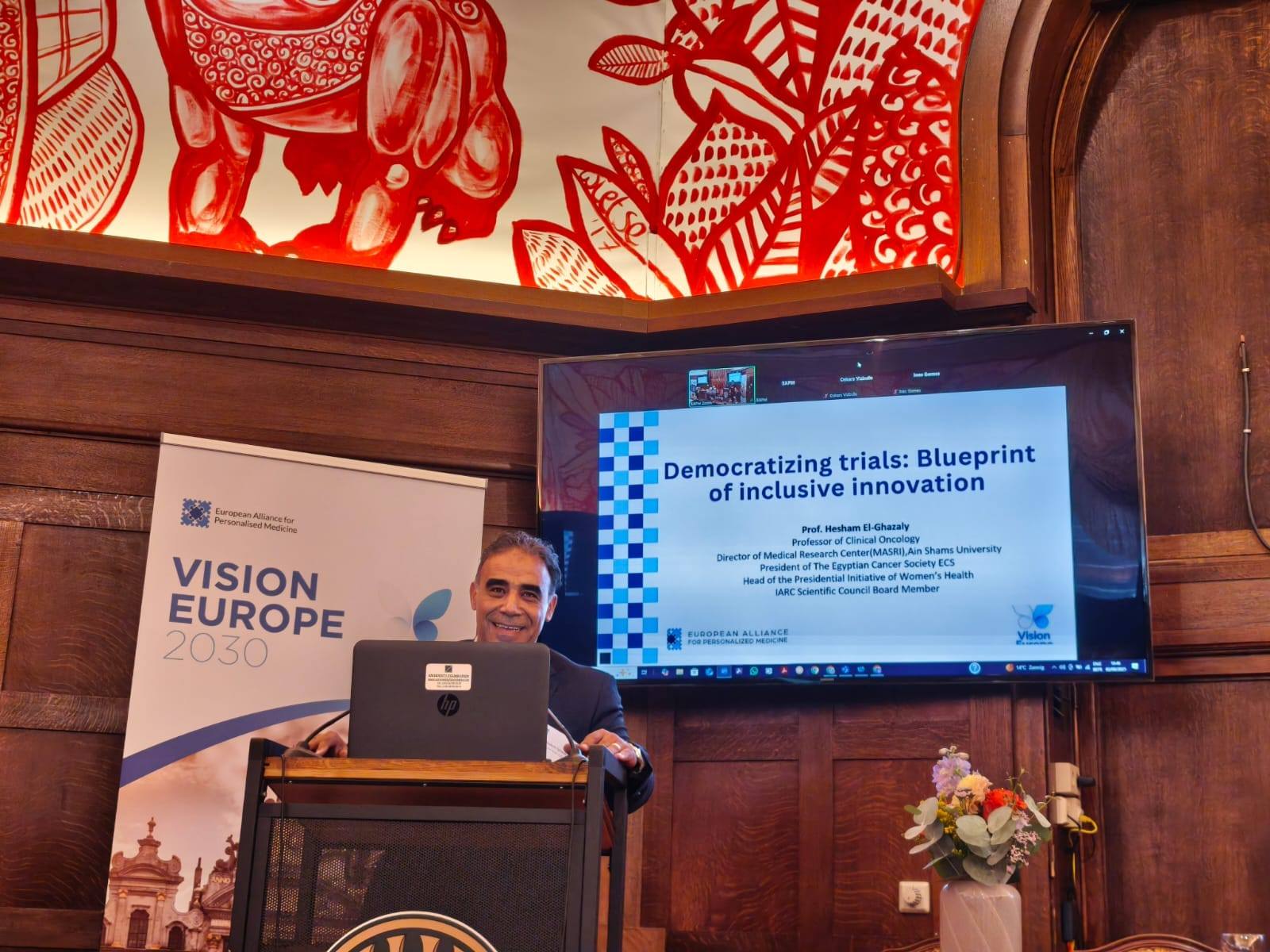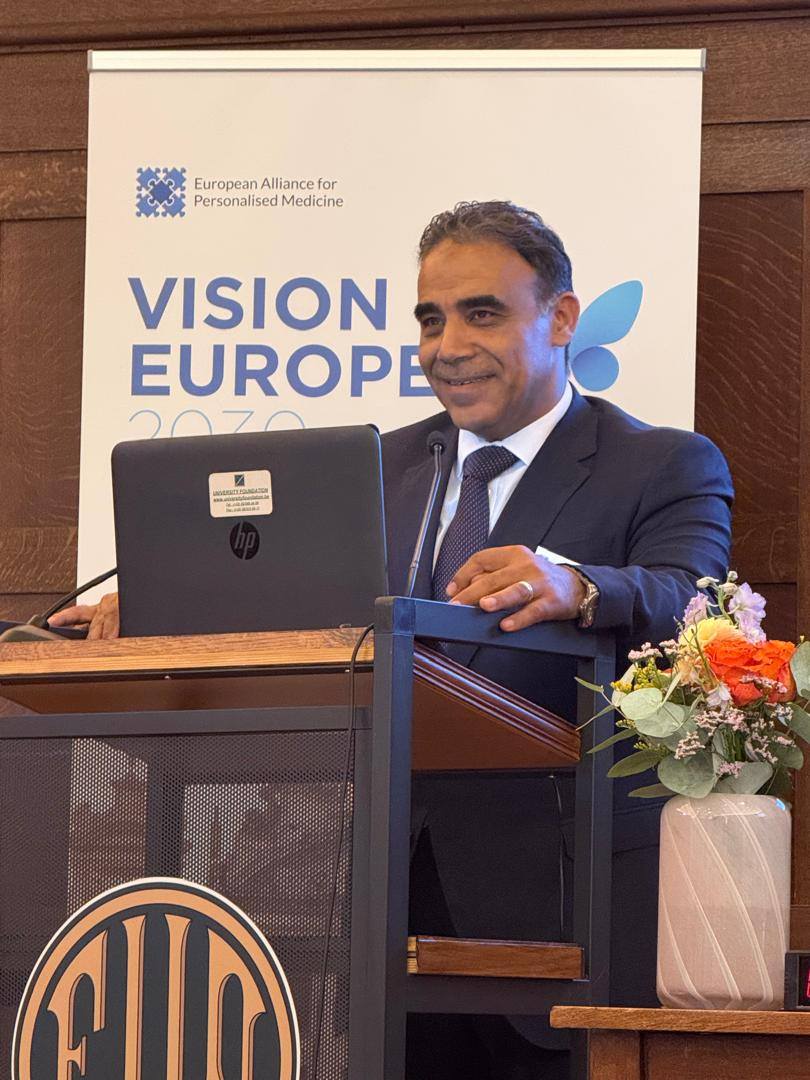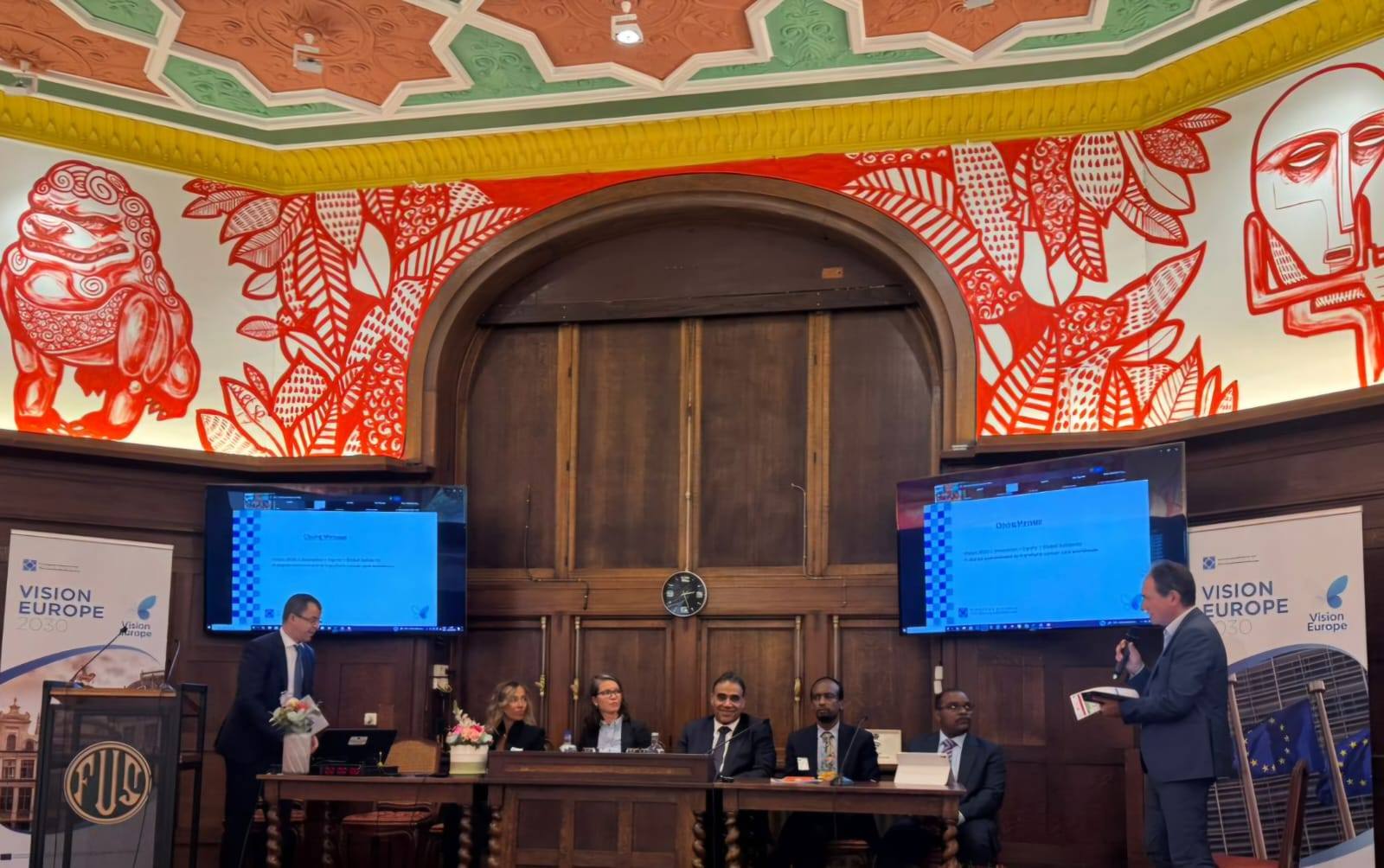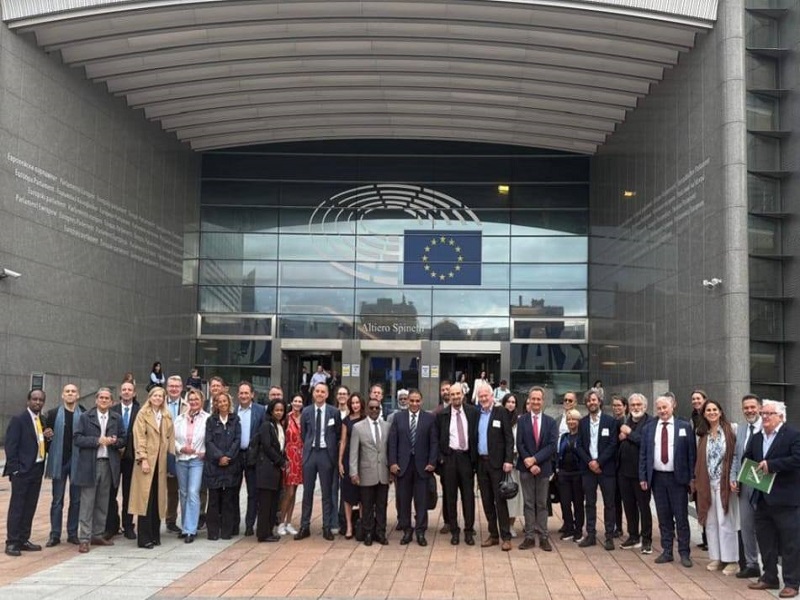The Medical Research Center (MASRI) at Ain Shams University showcases the Egyptian Experiment as a Pioneering Model at the Vision Europe 2030 conference
Within the framework of international cooperation in research and innovation, and advocating for the democratizing clinical trials, Prof. Hesham El-Ghazaly, Director of the Medical Research Center (MASRI) at the Faculty of Medicine, Ain Shams University, and President of the Egyptian Cancer Society, participated in formulating Europe's Vision 2030 during the conference held in Brussels, Belgium, on September 2 and 3, 2025. The conference was hosted by the European Alliance for Personalized Medicine (EAPM) and the International Cancer Patients' Alliance (ICPC).
 |
 |
 |
||
Prof. Hesham El-Ghazaly explained that the conference's first theme focused on the importance of integrating the African continent into global clinical trials and research, given its promising population of over one billion and its fertile environment for research and innovation.
He emphasized that engaging in Africa is a strategic necessity to ensure equitable access to research and innovation and enhance the comprehensiveness of clinical trial results, reflecting human diversity. He added that investing in building a sustainable research infrastructure is a means of combating diseases and developing therapeutic solutions that serve the needs of the continent's people, in addition to preparing a new generation of research talent.
During the discussion, Dr. Hesham El-Ghazaly presented the Egyptian experience as a pioneering model in developing scientific research within the continent, through the efforts of the Egyptian Research Center at Ain Shams University, which works to qualify young research talent and enhance cooperation with major international universities and centers such as Fudan University in China and MD Anderson Cancer Center in the United States. This cooperation has resulted in the publication of Egyptian research in prestigious international scientific journals, reflecting the seriousness of Egyptian scientific research and its ability to compete globally.
He emphasized that investing in scientific research and capacity building represents the path to progress, and that the African continent is qualified to be an effective partner in shaping the future of medical research if it receives international support and recognition of its strategic position.
The session concluded with a recommendation to intensify international support for Africa and integrate it into global research, enhancing its capabilities to combat chronic diseases and tumors and driving sustainable health and scientific development.
The conference also addressed another theme: precision medicine, a fundamental pillar for improving patient treatment through personalized care based on the genetic and biological characteristics of everyone, increasing treatment efficiency and reducing side effects. The importance of global alliances in clinical and genetic research, exchanging scientific data, and promoting innovation within the framework of globalization was emphasized to build a more comprehensive health system that is more responsive to global challenges.


.svg)

